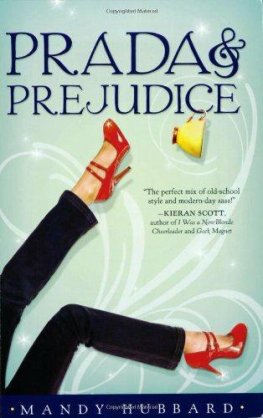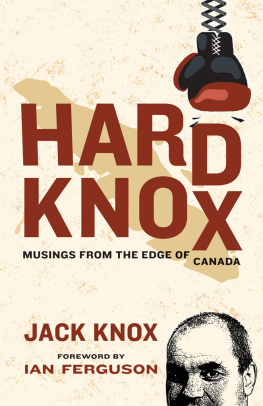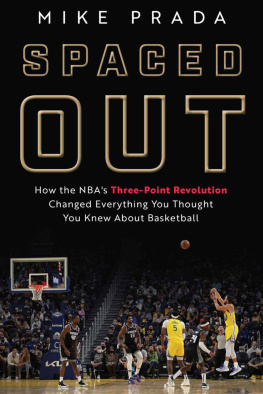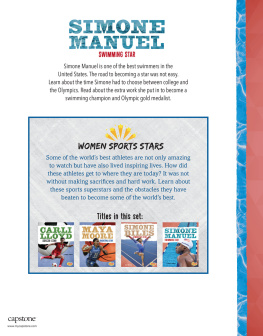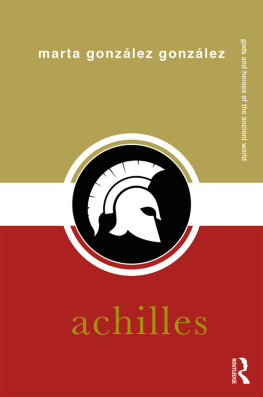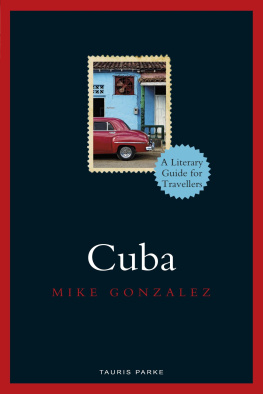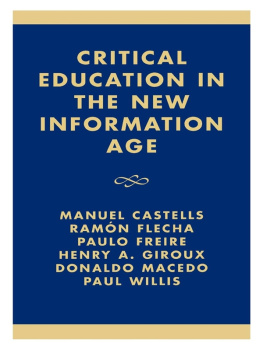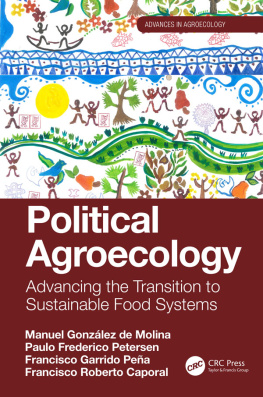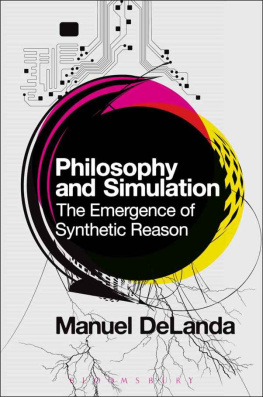Prada Manuel González - Free pages and hard times: anarchist musings
Here you can read online Prada Manuel González - Free pages and hard times: anarchist musings full text of the book (entire story) in english for free. Download pdf and epub, get meaning, cover and reviews about this ebook. City: New York;Oxford, year: 2002;2003, publisher: Oxford University Press USA - OSO, genre: Detective and thriller. Description of the work, (preface) as well as reviews are available. Best literature library LitArk.com created for fans of good reading and offers a wide selection of genres:
Romance novel
Science fiction
Adventure
Detective
Science
History
Home and family
Prose
Art
Politics
Computer
Non-fiction
Religion
Business
Children
Humor
Choose a favorite category and find really read worthwhile books. Enjoy immersion in the world of imagination, feel the emotions of the characters or learn something new for yourself, make an fascinating discovery.

- Book:Free pages and hard times: anarchist musings
- Author:
- Publisher:Oxford University Press USA - OSO
- Genre:
- Year:2002;2003
- City:New York;Oxford
- Rating:4 / 5
- Favourites:Add to favourites
- Your mark:
- 80
- 1
- 2
- 3
- 4
- 5
Free pages and hard times: anarchist musings: summary, description and annotation
We offer to read an annotation, description, summary or preface (depends on what the author of the book "Free pages and hard times: anarchist musings" wrote himself). If you haven't found the necessary information about the book — write in the comments, we will try to find it.
Free pages and hard times: anarchist musings — read online for free the complete book (whole text) full work
Below is the text of the book, divided by pages. System saving the place of the last page read, allows you to conveniently read the book "Free pages and hard times: anarchist musings" online for free, without having to search again every time where you left off. Put a bookmark, and you can go to the page where you finished reading at any time.
Font size:
Interval:
Bookmark:
(1886)
Gentlemen:
If men of genius are snow-covered mountain ranges, their imitators are little more than rivulets fed by the snow melting from the peak.
Not only do we have geniuses who invent and geniuses who renew and apply whats invented, but were overrun by the mediocrity that apes and copies. How many third-rate epic poems were inspired by the Iliad and the Odyssey! How many lame tragedies inspired by the works of Sophocles and Euripides! How many vacuous songs by the odes of Pindar and Horace! How many rancid eclogues by the pastorals of Theocritus and Virgil! Everything good, everything grand, everything beautiful, was perverted, diminished, and made ugly by unskilled imitators.
For centuries there was an obsession with composing variations on Greco-Latin topics, and there was in literature a falsified Rome and a doubly bewitched Greece because everyone looked at the Greeks through a Roman lens. Many tried to follow faithfully the tracks of Latins and Greeks, as if a strong, healthy man could be followed by a cripple wobbling on crutches or a paralytic stumbling over his own feet!
Imitation, which serves as an exercise in the practice or technique of the arts, should be considered neither an art in itself nor arts primary object. Imitation is the same as moving and wearing oneself out pushing a railroad coach: we think were accomplishing much and all were doing is following the impulse of the engine.
In literature, as in everything, Peru always lived on imitation. Yesterday we imitated Quintana, Espronceda, Zorrilla, Campoamor, Trueba, and today we continue the series of imitations with Heine and Bcquer in verse, with Catalina and Selgas in prose. Since Bcquer wrote miniature poetic compositions and Selgas wrote rather short articles in short, almost biblical, sentences, in Peru now theres a vogue for poetry consisting of two quatrains with vowel rhyme only, as well as a fondness for very short essays bristling with antitheses, verbal conceits, and puns; in other words, weve given ourselves up entirely to frivolous literature.
Stern Catalina had an exquisite poetic sensibility, obvious talent, and vast erudition. A student of Hebrew with a blind faith in the dogmas of Catholicism, he set out to refute the Life of Jesus, when it had become fashionable to break lances with Renan. Once the fad was over, the refuters as well as their refutations sank into oblivion, but Catalina remains afloat today, not because of his Response to Renan, but for his book Woman, which he published when he was very young, with a prologue by Campoamor.
In Woman, Catalina takes a perspective opposed to Balzac, but he lacks the good judgment of Aim-Martin and the generous spirit of Michelet. The book exalts the fair sex to such an extent, and emanates such a pronounced flavor of mysticism, that it seems to have been written with rose dust dissolved in holy water. Works like this are entertaining when youre eighteen years old, make you smile when youre twenty-five, but put you to sleep when youre thirty. They shouldnt be taken seriously, like a dithyramb by a seminarist who hasnt yet lost his virginal grace.
Here the asthmatic rhythms of Saavedra Fajardo alternate with the perfervid rhythms of Quevedo at his worst, a Quevedo wielding his pen in a moment of frustration. Now and then theres a glimmer like the mind of a Lamennais who has been chastized and censored by the Sacred Congregation of the Index.
In works written subsequent to Woman, Catalina changes style but not substance. He abandons the closed style and begins to use the endless, languid sentences of Mateo Alemn. He continues to bow down before the yoke of faith, never experiencing the torment of doubt, never rising to the summits of reason.
If he never manages to convince the disbeliever or support the waverer with any of his writings, neither does he inflame hatred or induce revulsion; in all of his work we can discern a sincere believer and a man of loyal heart. In his works he emits melancholy, that vague presentiment or sadness of men destined to die young.
* * *
CATALINA WAS FOLLOWED by Jos Selgas y Carrasco. After publishing two collections of verse, Spring and Summer, Selgas abandoned poetry and devoted himself energetically to prose.
With a superficial and secondhand erudition, with passages copied from French polemicists, he undertakes a crusade against modern science and civilization. He comes across as aggressive, caustic, sarcastic, and bloody, and like all men quick to attack, he doesnt know how to defend himself or resist when he is attacked. Using weapons that he doesnt handle well, he tries to land mortal blows and leaves his whole body vulnerable to the enemy. Although now and then he stuns, he never disables because his arguments are like loud but harmless blows with an airbag. Pressing hard, suddenly he draws back like Voltaire, firing off a joke.
Forgoing wornout and stale ideas, it would be unfair to deny that Selgas has a quick, subtle, and penetrating wit: there may be no more paradoxical man in Spain. However, in straining for sharp effects, he often fails to make himself understood. Because he overuses antiphrasis, we never know if hes speaking seriously or joking with us.
In Selgas, there is no logical succession of conclusions but rather associated generally unconnected ideas. You can take your scissors to entire sections of anything written by Selgas, put the cuttings into a lottery wheel, take them out and read them, and in all likelihood come up with a new article. He lacks concision, the gift of saying much with few words. Far from dispensing gold dust, he buries you in sand. Selgas is like a Castelar sifted and dyed with Carlist hues.
In his style, asthmatic amid asthmatics, he wears you out with puns, bores you with his antitheses, befuddles you with his preciosity. To use a phrase from Voltaire: he weighs ant eggs on spider-web scales. He shouldnt be regarded as a tamer of phrases but as a punisher of words. He plays with words the way Japanese prestidigitators play with knives. He wrenches from the inkwell line after line of short, motley phrases, the way carnival sword-swallowers pull from their stomachs yards and yards of narrow, multicolored ribbons.
His primary weakness is not ambiguity but affectedness, revealing in each flourish a writer eager to produce some startling effect. He even tries to display his wit in the way he places his orthographic signs. Its impossible to read him for more than a few minutes at a time. Reading Selgas is like a tiresome ascent up an endless, dark, solomonic stairway. We expect gusts of light, moments of respite, but respite and light never come.
He never proceeds in a direct line toward the subject, but always in curves and angles, twisting and convoluting; so that when we think hes far away from us, he takes great pleasure turning somersaults right behind us. Like a character from a magic show, he hides in the clouds, then suddenly appears through a trap door. Selgas, finally, climbs onto the tightrope, executes mortal leaps, achieves prodigious feats of agility, then finally loses his balance, drops his cane, and falls on the spectators.
* * *
THATS WHAT CATALINA and Selgas are like in brief: prose writers with no real originality, since they are right out of the Parisian tabloids. Pour any article by Catalina and Selgas into French (if Selgas can be translated at all), publish them in any newspaper sold along the Seine, and theyll be indistinguishable from the thousands and thousands of articles produced by innumerable French writers.
Font size:
Interval:
Bookmark:
Similar books «Free pages and hard times: anarchist musings»
Look at similar books to Free pages and hard times: anarchist musings. We have selected literature similar in name and meaning in the hope of providing readers with more options to find new, interesting, not yet read works.
Discussion, reviews of the book Free pages and hard times: anarchist musings and just readers' own opinions. Leave your comments, write what you think about the work, its meaning or the main characters. Specify what exactly you liked and what you didn't like, and why you think so.

